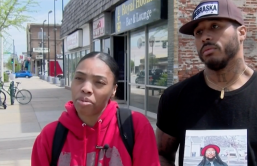Dora Charles helped make Paula Deen's Lady & Sons Georgia restaurant the establishment that made the celebrity chef's career, and she did it while making less than $10 an hour for years while enduring discrimination and poor treatment while Deen went on to become a Food Network star, according to the New York Times.
Deen called Charles her "soul sister," but their friendship was far from equal.
Charles told the Times that Deen used racial slurs behind-the-scenes, and once requested that Charles ring a dinner bell in front of the restaurant while yelling, "Come and get it!"
"I said, 'I'm not ringing no bell,' " Charles said. "That's a symbol to me of what we used to do back in the day."
Charles, a black woman from Savannah, Ga. with no formal education beyond ninth grade, considered it good work at the time. She helped develop recipes, trained other cooks and made sure everything tasted right, while Deen held out a promise that one day the two would get rich together.
Now, as Deen's multi-million dollar empire collapses around her in the wake of her racism scandal, Charles, 59, lives in an old trailer home on the outskirts of town, nursing a bad shoulder.
"It's just time that everybody knows that Paula Deen don't treat me the way they think she treat me," she told the Times.
Their relationship was complex, tinged with both affection and inequality, with roots that can be traced back to the antebellum South.
According to culinary scholar Jessica B. Harris, whose books have explored the roles of African-American women in Southern kitchens, Deen's and Charle's story is not new, dating back to the times when slaves began cooking for whites.
"Peering through the window of someone else's success when you have been instrumental in creating that success is not a good feeling," Harris explained. "Think about who made money from the blues."
Deen met Charles while running a restaurant in a Best Western hotel. Charles, who was recently divorced and tired of working in fast-food kitchens, cooked her version of Southern food for Deen and was hired immediately. Charles helped Deen cater parties until the day they could open Lady & Sons.
"If I lost Dora, I would have been devastated," Deen wrote in her 2007 memoir, "It Ain't All About the Cooking."
But their relationship had a catch, as according to Charles, Deen had made her a promise from the get-go: "Stick with me, Dora, and I promise you one day if I get rich, you'll get rich."
Charles said now she wished she had gotten that promise in writing. "I didn't think I had to 'cause we were real close back then," she told the Times.
Deen's publicity team, however, issued the following statement about Dora Charles: "Fundamentally Dora's complaint is not about race but about money. It is about an employee that despite over 20 years of generosity feels that she still deserves yet even more financial support from Paula Deen. "
Investigations from Rev. Jesse L. Jackson's Rainbow PUSH Coalition revealed that at Lady & Sons, "there was evidence of systemic racial discrimination and harassment at the operations," though "there is limited evidence of direct racism or racial discrimination" by Paula Deen herself.
"I'm not trying to portray that she is a bad person," Charles said. "I'm just trying to put my story out there that she didn't treat me fairly and I was her soul sister."
Charles, who attended Deen's wedding and at times appeared on her television show and on signature cruises, retained several perks from her day job, including clothes and other free goods that came along with Deen's stardom.
However, there was a darker side to Deen's empire behind-the-scenes. Charle's friend Ineata Jones, whom Deen affectionately called "Jellyroll," got a job for the chef and soon became just as close to her, but things went too far when Jones was asked to dress up in an Aunt Jemima outfit.
"Jellyroll didn't want to hear that," Charles said. "She didn't want to do that."
Though Deen denied in her statement ever asking anyone to dress in an Aunt Jemima outfit, Charles claims it did in fact happen, and that Deen referred to Jones using a racially offensive term for a black person: "Jellyroll," a 19th century slang word originally used to describe female genitalia.
Jones, who worked making biscuits for $10 an hour at the Lady & Sons restaurant, only had positive things to say about Deen in a phone interview and declined to speak to the Times further about Charles's accusations.
"It's just such a complex drama," Marcie Ferris, a professor who coordinates the Southern studies program at the University of North Carolina at Chapel Hill, told the Times. "It points to the fact that race is at the heart of Southern food and you can't avoid it."
"I still have to be her friend if I'm God's child," said Charles of Deen. "I might feed her with a long-handled spoon, but, yeah, I'm still her friend."
Click here to see a video from the New York Times interviewing Dora Charles on her experiences cooking for Paula Deen.








